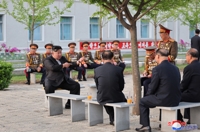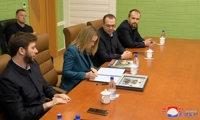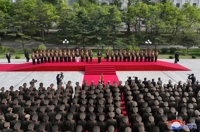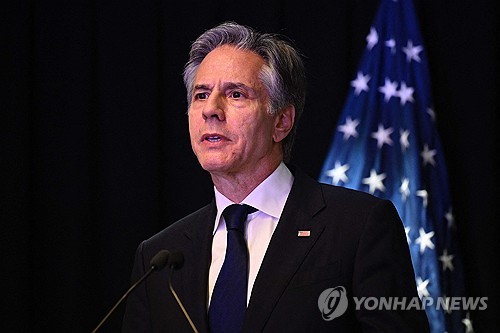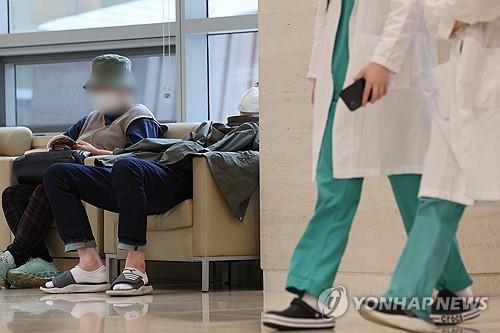MERS woes hampering recovery in private spending: KDI
SEJONG, July 6 (Yonhap) -- The fallout from the Middle East Respiratory Syndrome (MERS) outbreak is crimping the recovery of private spending in South Korea, with the service sector bearing the brunt, a state-run think tank said Monday.
Also, exports and facility investment remain in the doldrums without showing signs of a "satisfactory situation," according to the Korea Development Institute (KDI).
"Amid a continued slump in outbound shipments, the overall growth of private spending is judged to have weakened," the institute said in its latest report on the economy.
But the KDI said any negative impact from the MERS scare on Asia's fourth-largest economy is expected to taper off down the road.
South Korea has been struggling to tackle the MERS outbreak that has killed over 30 people and pummeled domestic demand that was considered to be on the brink of recovery.
The potentially fatal disease has hit the retail and tourism industries specifically hard since its outbreak in late May as consumers avoided visits to public venues and foreigners canceled their travel plans on fears of contracting MERS.
As part of efforts to prop up sentiment, the BOK slashed the key policy rate to a record low of 1.5 percent on June 11. Seoul has also unveiled measures to support struggling sectors.
Also, the government has proposed an around 12 trillion-won extra budget to help the local economy not lose its growth momentum.
As the MERS outbreak has further slackened domestic demand here, the Bank of Korea, which slashed its growth forecast to 3.1 percent from 3.4 percent in April, is forecast to further cut the growth estimate this week. The government has already cut its growth projection to 3.1 percent from 3.8 percent.
The institute also said that external uncertainties, caused by Greece's potential exit from the eurozone, may increase, but its spillover impact on the South Korean economy is expected not to be so large, given Seoul's limited exposure and ample global liquidity.
On Sunday, more than 60 percent of Greek voters turned down international creditors' austerity measures in a high-profile referendum, triggering concerns of a "Grexit" from the eurozone.
sam@yna.co.kr
(END)
-
 'Queen of Tears' weaves rich tapestry of Korean contemporary art
'Queen of Tears' weaves rich tapestry of Korean contemporary art -
 Ateez member Yunho throws first pitch at MLB match between Dodgers, Mets
Ateez member Yunho throws first pitch at MLB match between Dodgers, Mets -
 N. Korea says Kim guided simulated nuclear counterattack drills for 1st time
N. Korea says Kim guided simulated nuclear counterattack drills for 1st time -
 N. Korea calls envisioned U.S. aid to Ukraine 'hallucinogen'
N. Korea calls envisioned U.S. aid to Ukraine 'hallucinogen' -
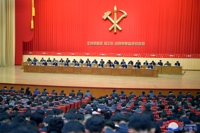 N. Korea calls on party propaganda officials to work harder
N. Korea calls on party propaganda officials to work harder
-
 'Queen of Tears' weaves rich tapestry of Korean contemporary art
'Queen of Tears' weaves rich tapestry of Korean contemporary art -
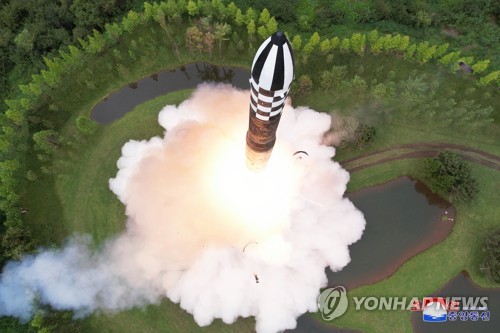 Experts see possibility of N.K. conducting nuclear test before U.S. presidential vote
Experts see possibility of N.K. conducting nuclear test before U.S. presidential vote -
 Details of meeting between Yoon, opposition leader undecided: presidential office
Details of meeting between Yoon, opposition leader undecided: presidential office -
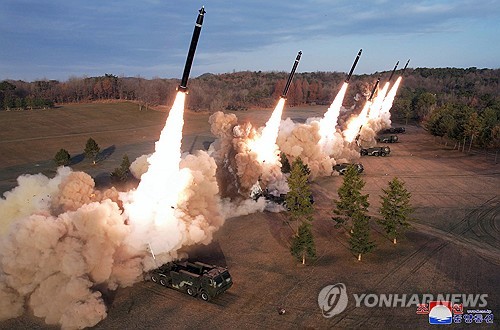 N. Korea says Kim guided simulated nuclear counterattack drills for 1st time
N. Korea says Kim guided simulated nuclear counterattack drills for 1st time -
 Looming weekly closure of major hospitals feared to worsen medical service crisis
Looming weekly closure of major hospitals feared to worsen medical service crisis
-
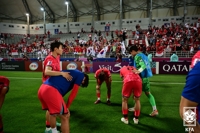 S. Korea eliminated in Olympic football qualifiers as poor defense, undisciplined play prove costly
S. Korea eliminated in Olympic football qualifiers as poor defense, undisciplined play prove costly -
 Indonesia coach left with mixed feelings after eliminating native S. Korea in Olympic football qualifiers
Indonesia coach left with mixed feelings after eliminating native S. Korea in Olympic football qualifiers -
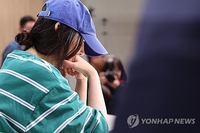 ADOR CEO calls conflict with Hybe 'worst experience of my life'
ADOR CEO calls conflict with Hybe 'worst experience of my life' -
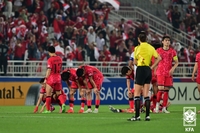 (LEAD) 10-man S. Korea lose to Indonesia to miss out on Paris Olympic football qualification
(LEAD) 10-man S. Korea lose to Indonesia to miss out on Paris Olympic football qualification -
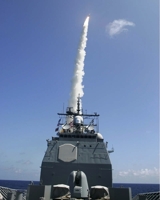 S. Korea to acquire SM-3 shipborne missiles by 2030
S. Korea to acquire SM-3 shipborne missiles by 2030















